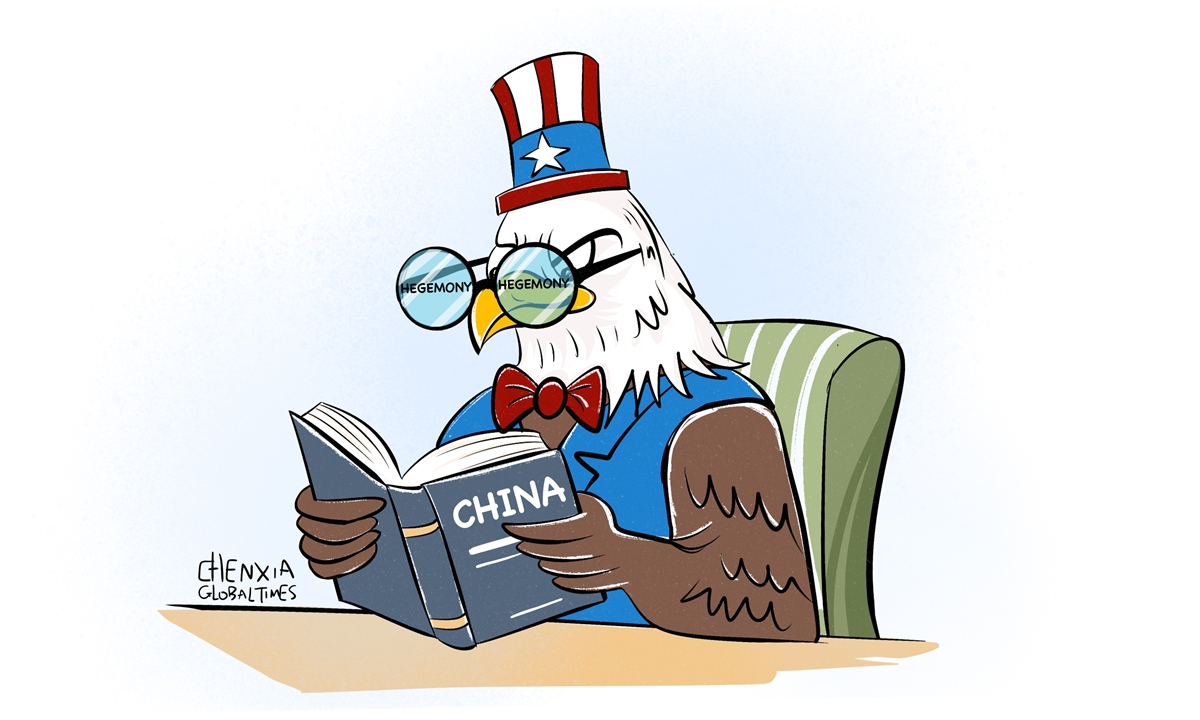
Illustration: Chen Xia
Amid all the news from Washington about China-US relations, one gets the increasing impression that certain politicians in the US are still living in a fantasy world of hegemonic dominance. They constantly talk about strength and power, yet selectively ignore the real shifts in the global balance.
The real China is neither mysterious nor threatening, and certainly not following a script written by someone else. What is needed is removing some US politicians' ideological filters and seeing China for what it truly is - witnessing how its people are forging a uniquely Chinese path to modernization. Only then can one truly grasp the meaning of strength in today's world.
For decades, the US has approached other countries from a position of strength. Whether dealing with allies or what it deems rivals, it has long preferred to measure others by rules that the US alone established, to cloak power in the guise of values, and to use sanctions as a cover for the absence of true equality in negotiations.
This inertia of hegemony has made it progressively harder for Washington to view the world today with clarity and accuracy.
Trying to understand 21st-century China-US relations through the lens of 19th-century Western power rivalries is like attempting to power a high-speed train with a horse-drawn carriage engine - it is bound to go off the rails.
In fact, Washington's strategy toward China is a manifestation of the psychological contradiction surrounding power.
On one hand, the US constantly wields the stick of power, while on the other hand, it repeatedly claims that its strength is no longer what it once was and that it needs to be "great again."
As a result, Washington is now gripped by a deep anxiety over its declining hegemony. It's like a player on a basketball court who insists on acting as both referee and competitor. But as the game increasingly tilts away from its favor, it has stopped trying to defend the rules and instead rushes to seize control of the ball.
When Yang Jiechi, then top Chinese diplomat, said in Alaska that "the US does not have the qualification to say that it wants to speak to China from a position of strength," revealing the essence of the shifting balance of power in international politics, it was not an emotional outburst, but a statement of objective reality.
The future of China-US relations hinges not on whether Washington can maintain its "big brother" posture, but on whether it can learn to view this ancient civilization, which has reshaped globalization over the past 40 years, on an equal footing.
The key to unlocking the deadlock in China-US relations lies in the process of globalization itself: The two major powers are already deeply intertwined. Forcibly "decoupling" will only cause both sides to bleed endlessly. The only way forward is through equal dialogue. "Mutual respect" is not a diplomatic slogan, but a fundamental rule of survival that both countries must acknowledge.
China's attitude toward the US is now very clear: drawing red lines and setting rules - this is how adults interact. If the US fails to adjust its mind-set and continues to engage with China from a position of strength, seeking to impose its will through power, the tensions in China-US relations will only deepen.
Ultimately, relations between countries are like relationships between people. You cannot always rely on illusory strength to solve problems; you need genuine understanding and equal dialogue to find common ground.




